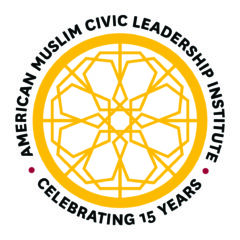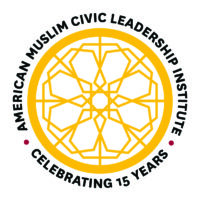What are some of the unique ways that AMCLI approaches leadership development?
Nadia: One practice I think is really cool is AMCLI’s practice of not having people introduce themselves with their organizational hat. It took away the transactional, organizational element of the program.
Everyone introduces themselves to each other as full people—who they are, what they care about, where they come from, what they want in the world. Their organizational affiliation comes out later in different sessions.
Often when we convene people, the first thing that’s asked is who are you, and what’s your title, and what organization are you representing?
Connecting person-to-person sets a different foundation for what it means to be in relationship or in community with one another.
Brie: The idea of treating people like they’re full humans is important to AMCLI’s approach. Even though this is a network, it’s also hopefully a deeply embedded set of relationships, and at the best they’re friendships.
Networks can also be transactional, and I’m really happy that people now use the AMCLI network to get a resource or job, but underneath the ability to transact—or maybe holding the ability to transact—is a relational container that’s deeper than what you can do for me and what I can do for you.
People aren’t assets to be managed or extracted. They’re hopefully people you’re in relationship with, and sometimes your closest friends and confidants. That comes from making people meet on a human level and then realizing how incredible they are.
The other component of all this is we tried to make AMCLI fun. We laugh. I always tried to be the goofiest. But I think that we tried to make participation in AMCLI something that was joyful because there was so much seriousness in the whole enterprise. If it couldn’t be joyful, it would just be another source of burnout.
So how do we get people to enjoy learning, enjoy building relationships and enjoy the prospect of changing themselves in a way that doesn’t make it feel like just another task?
Nadia: Yeah. I think we were intentional about not just having joy with one event—we definitely have game night—but also integrating joy throughout the day to give people a reprieve. We’re going to tackle some serious issues, but we don’t have to do that at the expense of bringing joy back into the work.
I also think it is helpful to raise the practice of having people reflect and learn from each other rather than through formal lectures. Our curriculum being experiential—and especially rooted in discussion and dialogue—was a very big shift from the traditional educational approach that most people were expecting.
What we learned is that we need to be the container and give the principles and the values, but actually having people walk through the work in partnership and wrestle with it together takes them much farther and allows them to grow and build both capacity and community better. Because if you give people the right structure to provide healthy feedback, they can be their own peer coaches and teachers. We don’t have that many mentors in this space.
Brie: It’s adult education and learning principles. I think we stumbled into it and then learned the pedagogic theory. This conversation leads me to think about a turning point for how we ran AMCLI programs—when Marshall Ganz, a professor of leadership at Harvard University’s Kennedy School of Government, called us chicken shits.
I came from a school of facilitation that said that the facilitator is not part of the conversation. That the facilitator’s job was to be almost therapeutic. The therapist is not part of the story. Your facilitator is not part of the conversation.
Marshall Ganz had come to be a trainer at AMCLI. We were on a break and we were talking, almost bragging about how well we had created this opportunity for the participants, but not for us. And he said, “That sounds really like chicken shit…”—that we were doing that as a form of self-protection rather than as facilitation.
So we started to experiment with modeling, doing the things that we’re asking other people to do, which is an adult education principle.
I remember one time I got feedback that I was aloof. I thought I was so warm! But I didn’t know that I had permission to be myself in the group. It was nice to be more fully ourselves in the group for people because it creates a lot of permission. It creates permission on game night to be goofy. It creates permission when you’re sharing something difficult for other people to do the same thing.
It says “I’m not going to take you someplace I’m unwilling to go.”
Nadia: One more practice that I’m thinking of is that we tried a lot of things and were not wedded to them. We would try things once and see if it worked, and if it worked, we’d keep building it in. And some stuff we tried didn’t necessarily hit the mark and we took it out.
We were really designing for the moment and the community.

